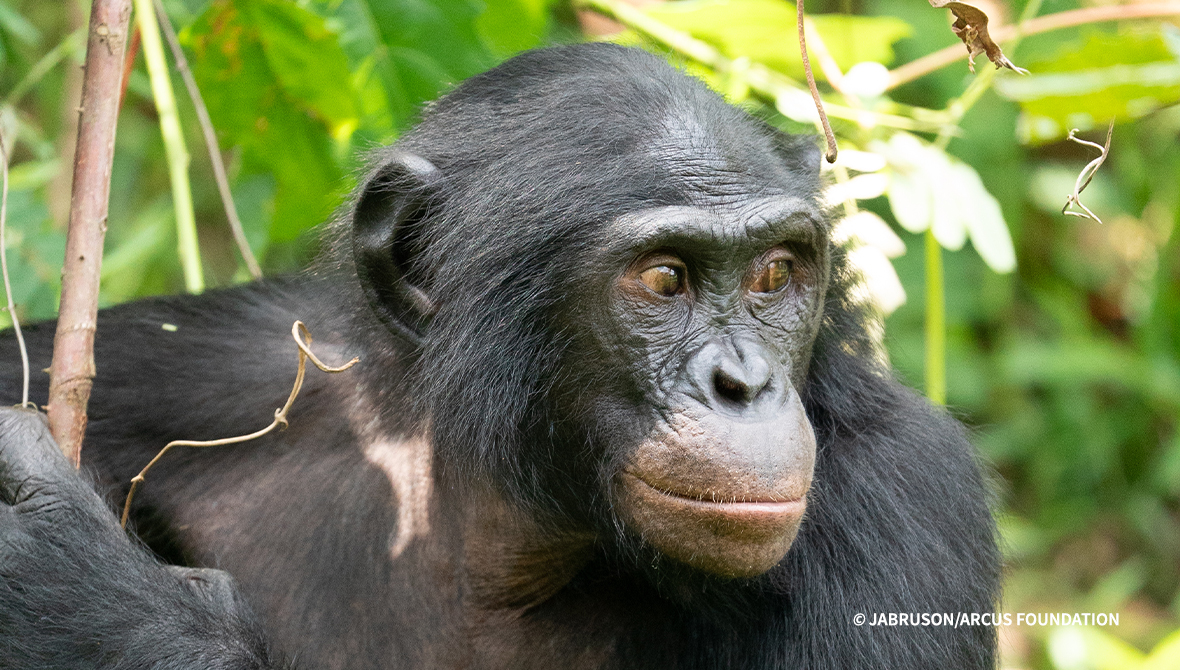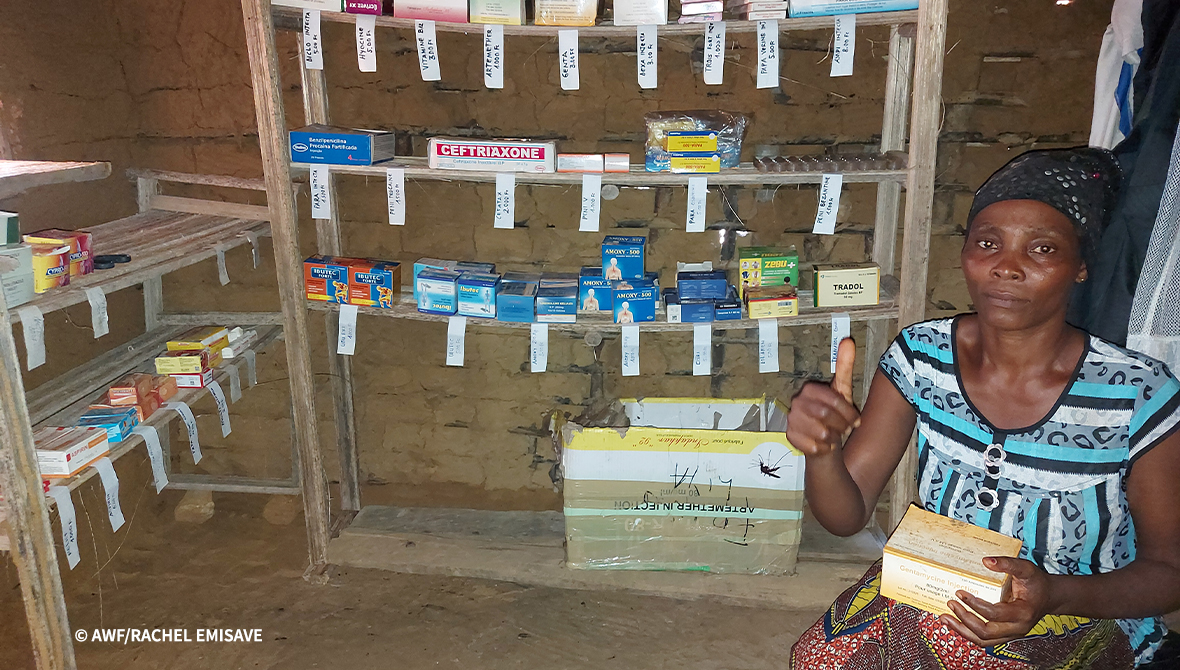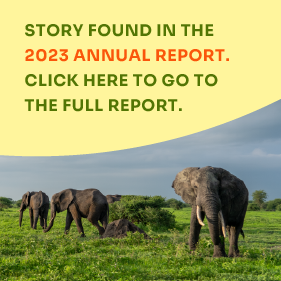Community-level Enterprise Changes Attitudes Towards Poaching in Bonobo Stronghold

In many cases, poaching, habitat loss, and other threats to wildlife occur because people do not have other options for making a living. In Cameroon, the DRC, Ethiopia, Kenya, Tanzania, and Zimbabwe, we helped local community members pursue economic opportunities that do not pressure wildlife. One example is Maringa-Lopori-Wamba, DRC, where microgrants and training have kickstarted hundreds of micro-businesses, including pharmacies, agricultural processing, and small trades. As communities there embraced new sources of income, poaching drastically declined.
In the Maringa-Lopori-Wamba landscape, an area of 74,000 square kilometers (around the size of Ireland) in north-west DRC, AWF partnered with Arcus Foundation and Village Enterprise to subsidize small business owners with microgrants, financing 240 micro-businesses with grants of around US $200-$500 each. We organized 180 business owners from three villages into 60 business groups, training participants in business management and saving strategies and providing coaching and assessments so the business groups had the ongoing support they needed to succeed.
To create alternatives to poaching for food security and income, we also kickstarted new conservation-friendly enterprises such as food processing, adding value to non-timber forest products, and preserving fish in areas where both poaching levels and poverty were high.
Community members attest to improved standard of living
Local businessperson Claude Bossio shared that before this initiative, he lived solely from hunting and struggled to feed his family. Now, he says, "Our group has created a pharmacy, and the profits we share have enabled me to set up my own mobile pharmacy to bring medicines to people who live far away in the forest. I'm no longer dependent on the fruitfulness of the forest, because with my money, I can now buy everything my family needs."
Another plus: women in the Mongo community have greater financial opportunities. "We used to be considered only as universal receivers, in that we received everything from our husbands, but today we are happy to contribute financially to the running of the household," says Lundi Ifili, another businessperson.
Regarding bushmeat hunting and trade, she continued, “We've got better things to do now.”

Lundi Ifili, pictured here, kickstarted a community mobile pharmacy thanks to a micro-grant.
When people thrive, so does wildlife
"We don't conserve for the sake of conserving; we conserve for people,” says Antoine Tabu, AWF Country Coordinator in the DRC. “That's why it's… encouraging to see that conservation is changing the lives of local communities."
The communities have largely turned away from hunting for bushmeat or poaching. Most hunters in the area have turned in their firearms to the authorities, and of the 12 poachers caught over two years, none were from the project area.
AWF has worked with communities in Maringa-Lopori-Wamba since 2004, starting with a project initiated by CARPE/USAID, which developed local capacity to manage natural resources, protecting the forest and its biodiversity. Today, in addition to encouraging small businesses, we also support participatory land-use planning, biological monitoring of wildlife populations and habitat, regular meetings and workshops in the community to engage in conservation planning, and counter wildlife trafficking efforts in partnership with the Institut Congolais pour la Conservation de la Nature (DRC’s wildlife authority).
These interdependent interventions are paying off. While bonobos and forest elephants are endangered and critically endangered, respectively, and populations of both are decreasing globally, ecological monitoring indicates that they are increasing in areas in the landscape where AWF has intervened.
>>Learn about how one woman chief is motivating her community to conserve
>>Read AWF's 2023 Annual Report
